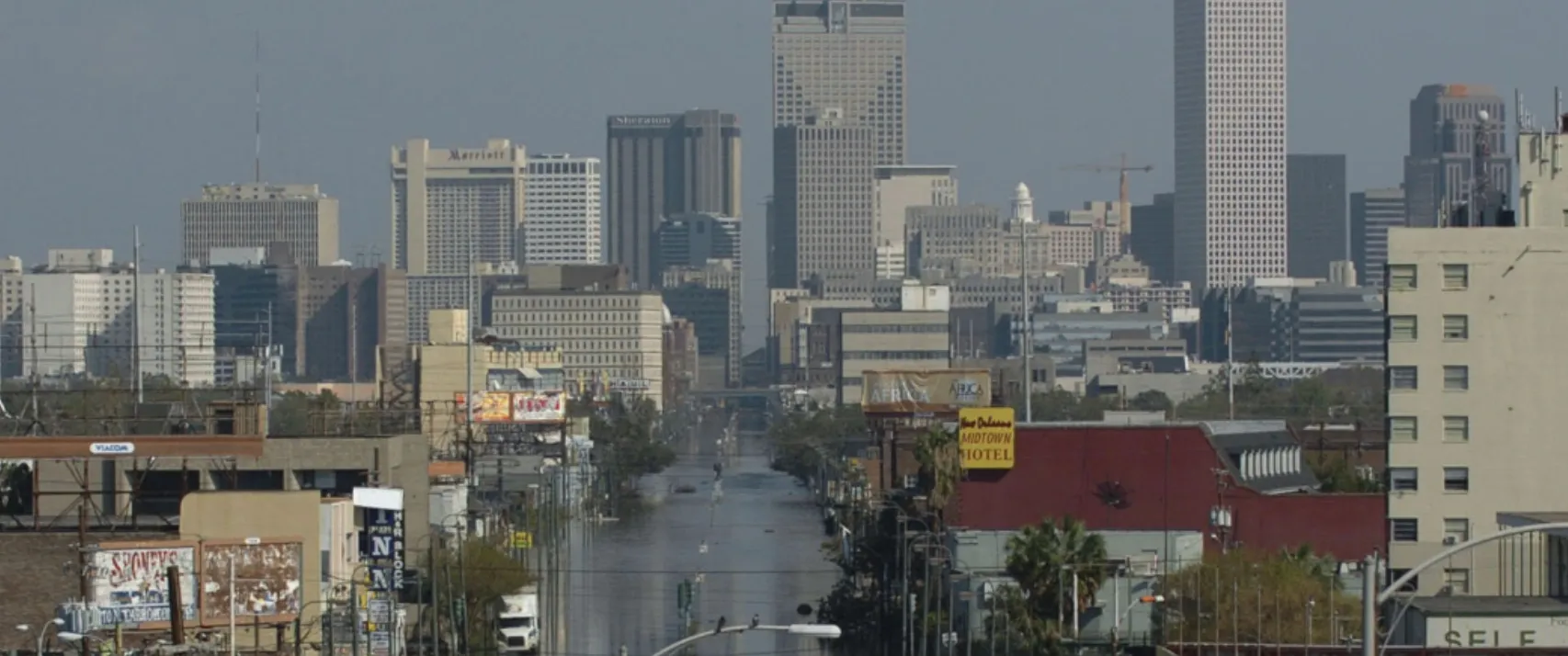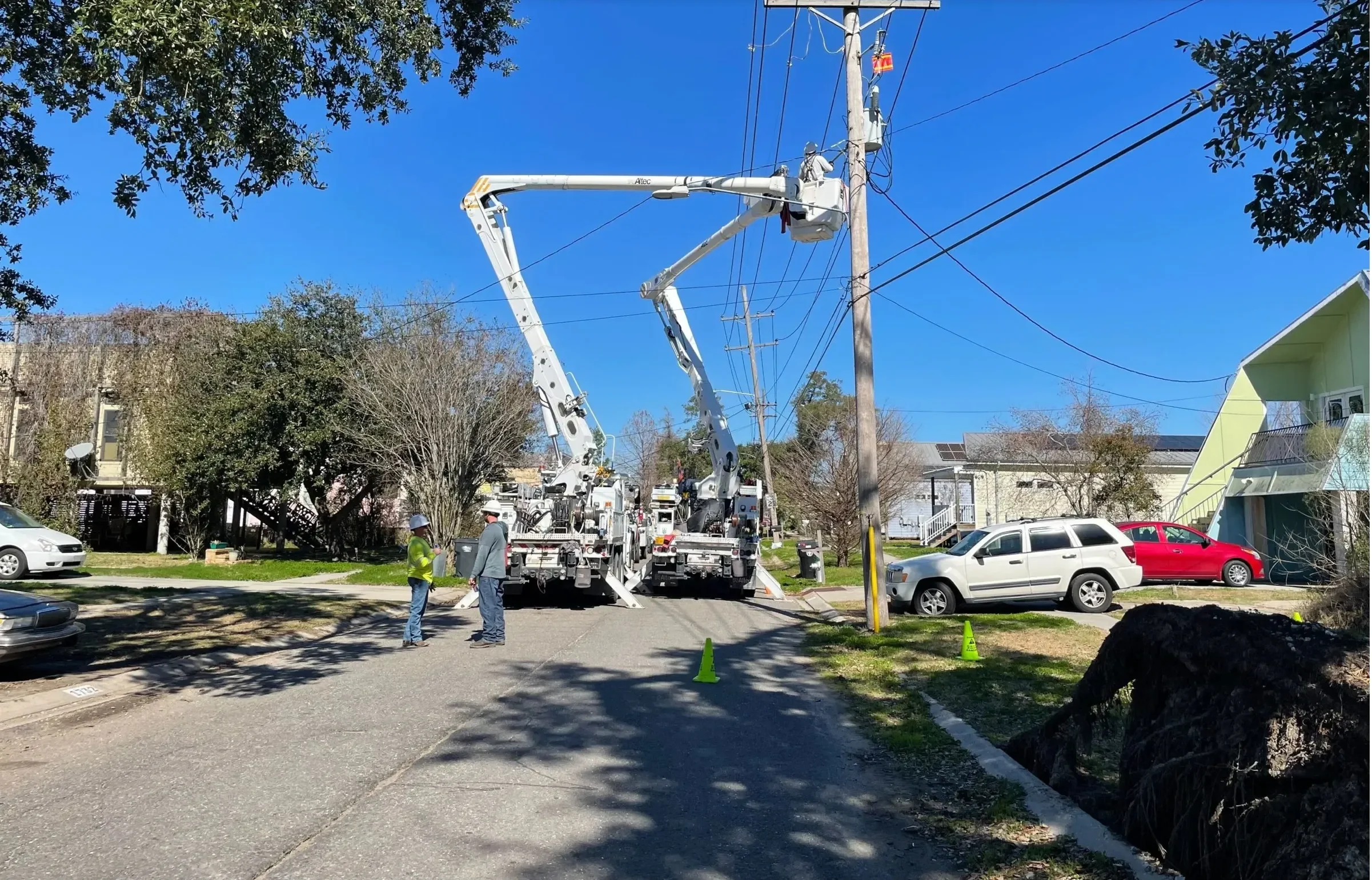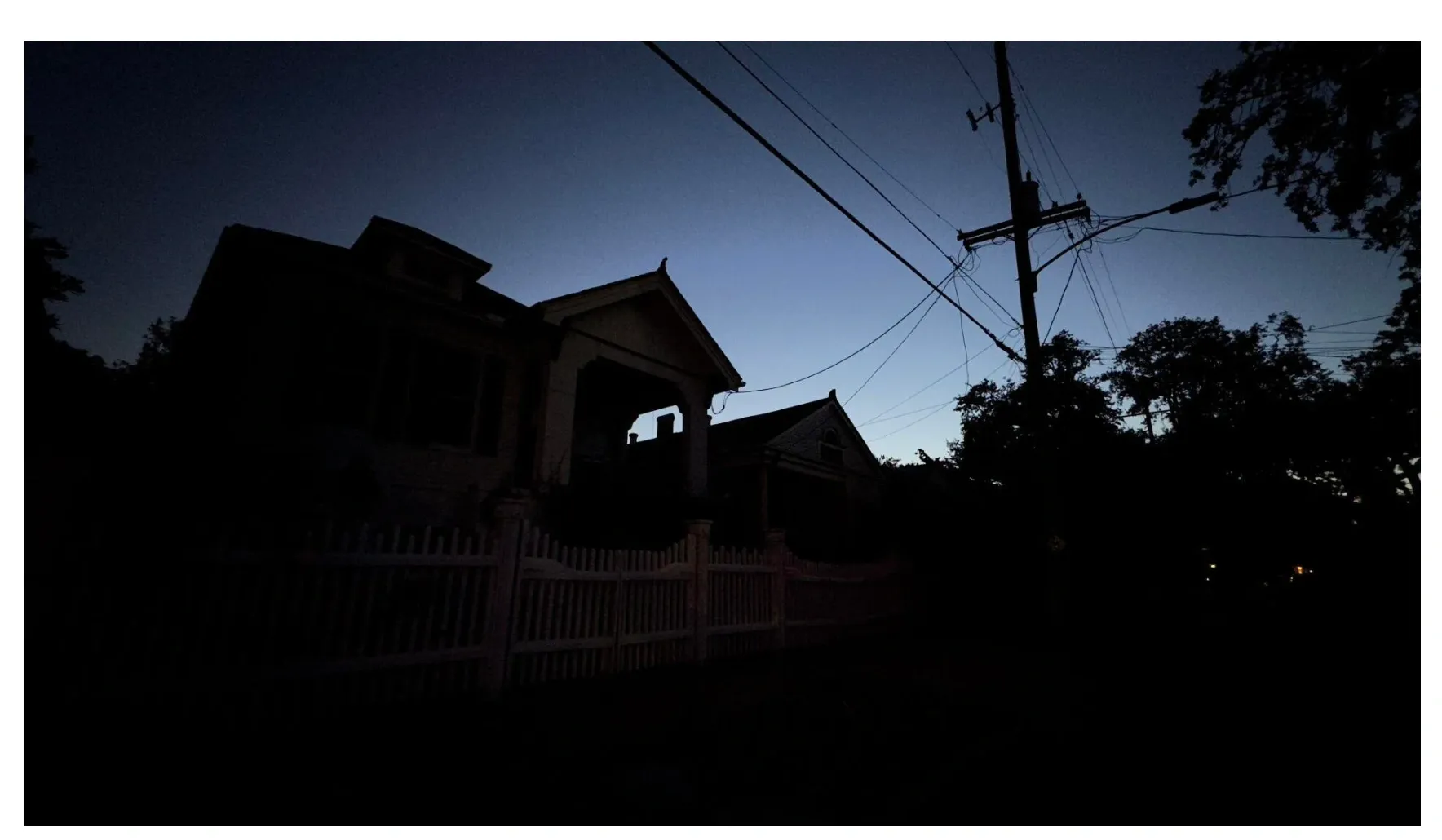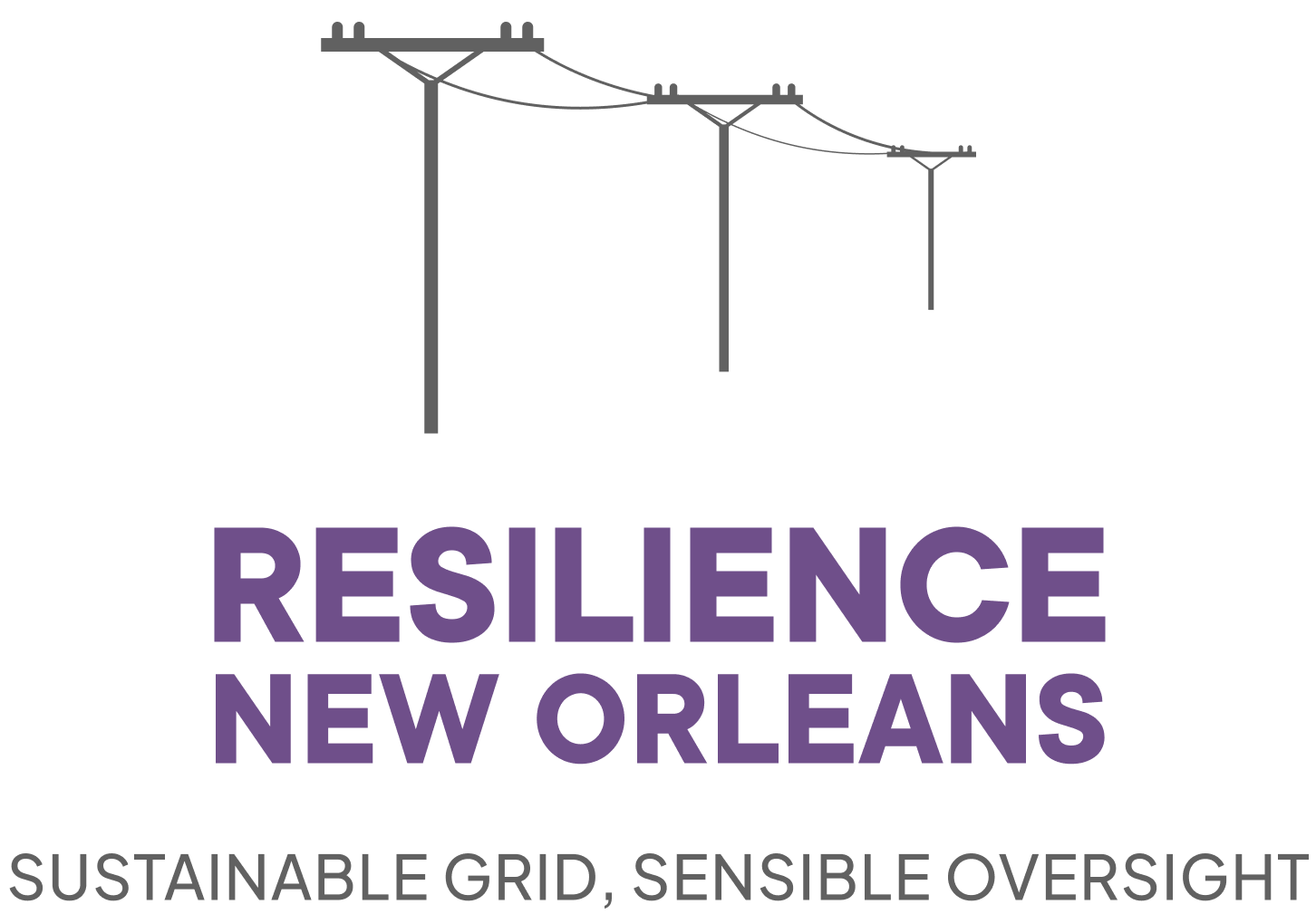Casey DeMoss: New Orleans and the Nation Need to Get Serious About Investing in Our Electric Grid

Resilience New Orleans’ Executive Director Casey DeMoss in Real Clear Energy.
“While all of these challenges are formidable, none of them compare to the greatest problem facing our electrical grid, which is that we have not made the necessary investments to modernize and strengthen our critical infrastructure.
New Orleans struggles to make necessary grid upgrades because we are stuck in a vicious cycle of storm destruction, costly repairs, and then belt tightening by regulators.”
Council Panel Denies Most of Entergy Grid Plan

“The proposed project, dubbed “Operation Gridiron” by the utility, involves citywide improvements to power lines, poles and transmission equipment. It is meant to avoid a repeat of the catastrophic failures that followed Hurricane Ida in 2021, leaving most of the city in the dark for more than a week.
There’s near-unanimous agreement that the city’s electrical grid is in need of critical improvements to increase its resiliency, especially in the wake of more frequent and intense freezes, hurricanes and heat waves due to climate change.”
How Entergy New Orleans’ Resiliency Plan Will Benefit the City’s Most Vulnerable Populations

“Based on our research, it is clear that all New Orleans residents stand to benefit from Entergy New Orleans (ENO) resilience investments. HedgeRow’s analysis, using only publicly available data, indicates that a significant portion of those benefits will flow to those experiencing financial, medical, food, or other social vulnerabilities. Higher per capita investments will be made in neighborhoods with a greater percentage of these energy vulnerable populations, and these residents will receive more benefits per capita as a result.”
Letters: Entergy Grid Hardening is Costly but Necessary

“New Orleans will upgrade its grid either by design or after a disaster.
If we implement a resiliency plan now, vulnerable communities at higher risk due to social, economic, food security, climate vulnerability, transportation and health factors can recover more quickly from severe weather.
But, if we continue to do costly emergency repairs only after massive hurricanes, all customers will end up paying more for a less reliable power grid.”
